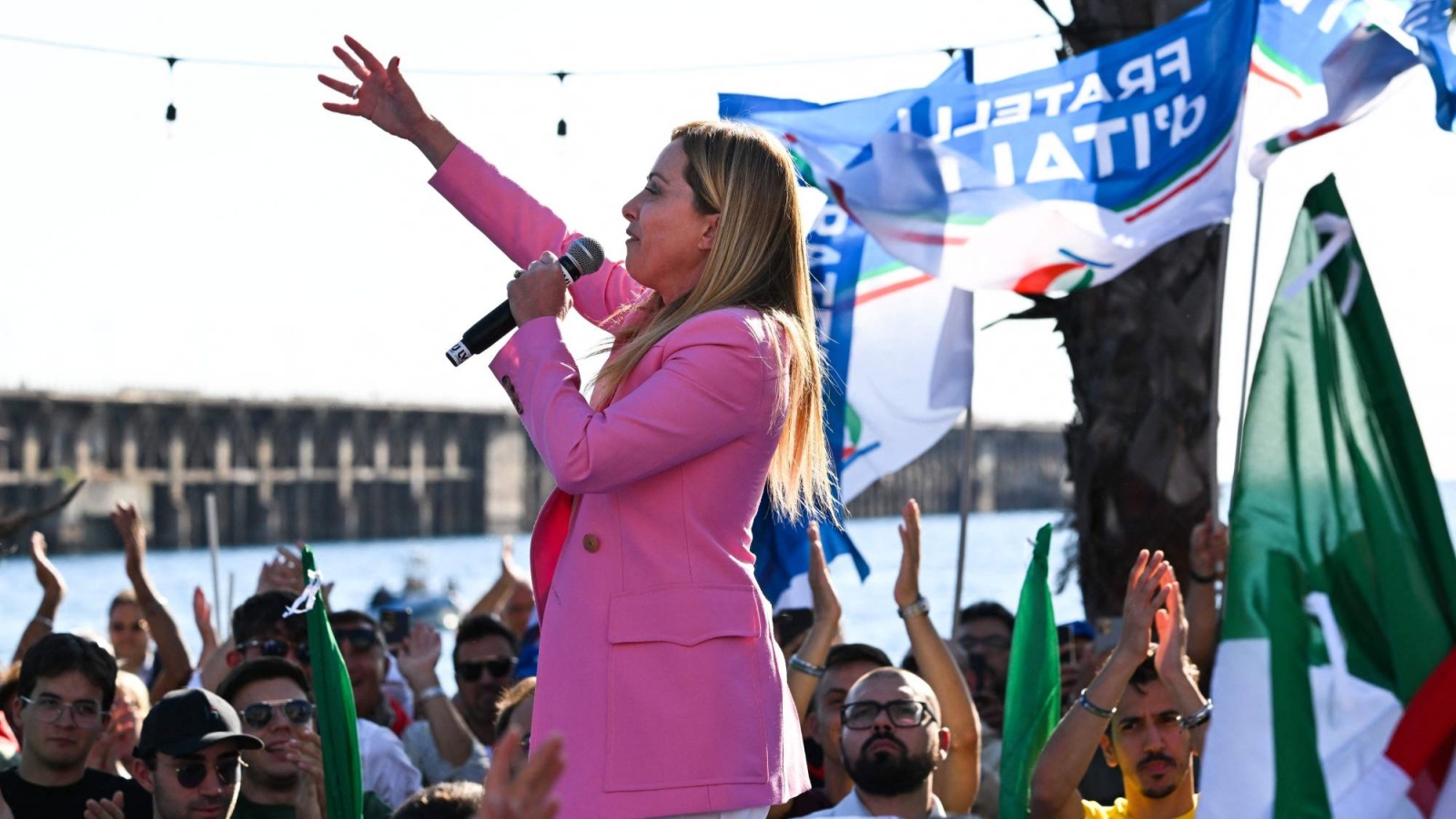The rise to power in Italy of the Far-Right Alliance, winning 44% of the vote, led by Georgia Meloni of “Italian Brotherhood” party, has raised concerns in the Middle East regarding the impact of the policies of the most right-wing government since the second world war on Italian relations with the region. For Italy, one of the most pressing issues is the need for Italy to guarantee and secure energy sources to replace those previously obtained from Russia. Another area of concern is security cooperation, as the Far-Right is adopting policies that may affect the future of Italian – Arab relations.
Georgia Meloni has placed the issue of immigration as a top priority. She has long been critical of the Italian government’s response to illegal immigration, which she perceives as a threat to Italy, and could turn it into “Europe’s Immigrant Camp”. She has made clear that she intends to stop the flow of refugees across the Mediterranean and called for the closure of Italy’s borders to stop the “Islamization” , and ethnic transformation of Europe. She has called for a sea blockade around Libya, and to actively prevent migrant boats from Africa reaching European shores. Moreover, migrants in her view should be detained in designated centers until it can properly be determined if they are eligible to be considered refugees, and only then can they be distributed amongst the European states. Therefore, many argue Meloni’s party will continue the policies of Mateo Salvini, whilst he was interior minister in 2018, when he dismantled the refugee centers in Italy and the services associated with them.
However, Meloni will be keen to uphold the current agreements with North African countries regarding energy, especially the agreement signed by Mario Draghi’s government with Algeria. This agreement will increase Algerian gas supplies to Italy as it is considered the most dependent European country on Russian gas, importing nearly 95%. It is noteworthy that the Italian company “Enel” concluded an agreement with the Algerian state energy company “Sonatrach” on September 28, immediately following the elections. The agreement stipulates that the Italian company will pay more for natural gas, due to the increases in global energy prices.
Many observers are expecting the new government to maintain existing policies when it comes to Libya as well, especially in relation to energy, as Italy has so much invested there. All of Italy’s competing parties in fact assumed the same stance during the election campaign, and none have expressed support for one of Libya’s two competing cabinets, Bashaga’s and the Debeiba’s, over the other. Italy is keen however to reduce the levels of immigration across the Mediterranean from Libya, where illegal migrants take advantage of instability to launch boatloads towards Italy.
In contrast to previous governments, Meloni declared that her governments policy towards the Middle East will put human rights and religious freedoms in focus, in tandem with securing access to energy sources in the Mediterranean and the Middle East. She has expressed support for the protests of women in Iran, and praised their standing up for their rights. It is noteworthy that she had previously, in 2018, praised the regional role played by Iran and Hezbollah, as well as praising the role of the Syrian regime in protecting the Christian minority in Syria. In 2014, Meloni condemned Israel’s treatment of children in Gaza and the attacks against hospitals and playgrounds in refugee camps.
However, Meloni has recently pledged to support Israel, and has pointed to her relationship with the Likud party, and previous visits to Israel. She has attempted to downplay the fascist roots of her party and has condemned anti – Semitic laws. She has announced her intention to visit Israel soon, to enhance bilateral cooperation, especially to secure more gas supplies to Italy. She has also affirmed Israel’s right to defend herself, although Israeli analysts do not expect her to move Italy’s embassy from Tel Aviv to Jerusalem, thereby continuing the policies of previous Italian governments. This stance was taken in view of the EU’s objection to such a move, and Meloni therefore perceives it as a sensitive issue, which would require consultations with her partners in the EU.
In conclusion, despite concerns in the region, there is unlikely to be a radical shift in Italian policy towards the Middle East under the new government. The emphasis on curbing illegal immigration from North Africa to Europe is not new, and all Italian political parties, despite their different orientations, are in agreement on this issue. Moreover, Italy was never particularly active in the various complex crises that plague the Middle East, with the exception of Libya. Previous Italian governments did not invest resources and effort in strengthening relations with Arab countries, except as alternative sources of gas supplies. Finally, there are many more pressing issues on the new government’s agenda, domestically and regarding relations with the European Union, that are likely to consume its attention for some time.


